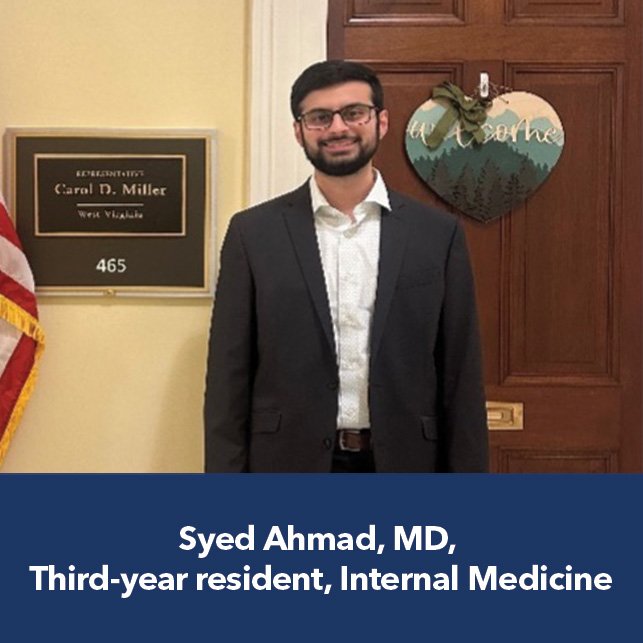
Member Perspective:
Growing My Advocacy through the ACP Health Policy Internship

The ACP Health Policy Internship offered a unique opportunity to understand ACP’s role in shaping healthcare policy and to witness the dynamics of the policymaking process. On day one, I engaged directly with a member of Congress to discuss how prior authorization requirements negatively impact patient care by causing unnecessary delays and draining valuable resources. I conducted research on the use of medical interpreters and the 340B drug pricing program, both of which contributed to the development of formal ACP policy positions. Throughout the month, I attended a variety of seminars, covering topics such as health science diplomacy and updates on Medicaid funding. Each day provided a new perspective on the multifaceted world of health policy and helped me envision the physician’s role in advocacy at both the state and national levels.
A defining moment of the internship was ACP’s Leadership Day, where nearly 500 members from across the country gathered to coordinate efforts and provide unified recommendations to Congressional offices. Students, residents, and attending physicians shared firsthand accounts of the critical role Medicaid plays in supporting vulnerable populations, the ongoing struggles of primary care physicians under constrained Medicare reimbursement, and the devastating effects of underfunded public health agencies. These meetings were instrumental in ensuring that policymakers heard from those directly delivering care and understand the real-world implications of their decisions. I came away with a deep appreciation for the power of advocacy. Without the voices of those on the front lines, the discourse around health policy becomes dominated by political agendas, financial interests, and competing priorities—often at the expense of patients. Physician advocacy ensures that policy remains centered on its ultimate goal: providing care to those who need it most.
Another notable experience was attending a conference on the Well-being Insurance for Seniors to be at Home (WISH) Act hosted by the bill’s sponsor Representative Tom Suozzi. It was inspiring to observe a collaborative legislative process involving diverse stakeholders—Congressional representatives, physicians, business owners, lobbyists, potential consumers, and ACP staff—sharing perspectives on shaping a long-term care insurance plan. This town hall-style format demonstrated how inclusive policymaking can be replicated at local and state levels, fostering community engagement and increasing public awareness.
Near the end of the internship, I had the opportunity to testify at a Department of Education public comment session regarding proposed cuts to Public Service Loan Forgiveness and income-based repayment programs. I spoke about the burden of medical education debt, often above $200,000 for graduating students, and how such financial strain threatens the future physician workforce. For many aspiring physicians from low-income backgrounds, the choice to pursue medicine is no longer based solely on passion or merit but on the ability to navigate overwhelming financial barriers.
This internship not only illuminated how policy is crafted at the national level but also empowered me to take concrete steps through my state ACP chapter and local Congressional offices. Many health policy decisions are made at the state level, where physician voices are critical in advocating for change. Healthcare reform must be a non-partisan effort—and physicians have an essential role to play in driving it forward.
Syed Ahmad, MD is a third-year resident in internal medicine at West Virginia University in Morgantown, West Virginia. Dr. Ahmad was one of the 2025 ACP Health Policy Interns. Learn more about the Health Policy Internship program for Resident/Fellow and Medical Student members interested in health policy and advocacy.